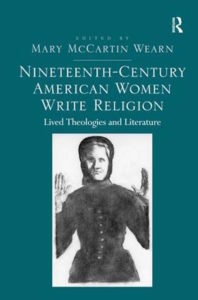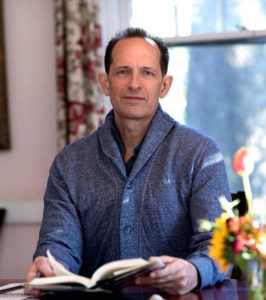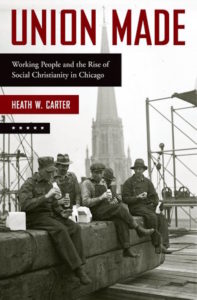 Lived Theologies and Literature
Lived Theologies and Literature
Religion was largely ingrained into the identity and everyday existence of the nineteenth-century American woman, shaping the literature female authors produced. Nineteenth-Century American Women Write Religion examines this vast collection of fiction, political writings, poetry, and memoirs to explore the diversity of religious discourse of the time as told by authors, activists, and faith believers, including Elizabeth Stuart Phelps, Angelina and Sarah Grimké, Louisa May Alcott, Rebecca Harding Davis, Harriet E. Wilson, Sarah Piatt, Julia Ward Howe, Julia A. J. Foote, Lucy Mack Smith, Rebecca Cox Jackson, and Fanny Newell. The collaborative product of ten scholars, this work focuses specifically on the lived theologies of these women, illuminating the ways they used the language of religious sentiment amidst the largely repressive context they found themselves in.
Mary McCartin Wearn opens with an introduction of the text, writing:
“Women’s literature of the nineteenth century provides an excellent artifact through which to illustrate the complicated and varied experience of religion in women’s lives. While feminine piety was a powerful force in the home, church, and community, women’s spiritual leadership was largely unofficial…
In a world where women were declared religious by nature but denied any official stature within the Church, the written word became an excellent means of establishing cultural authority and expressing faith in the public sphere.”
For more information on the book, click here.
Fellow travelers are scholars, activists, and practitioners that embody the ideals and commitments of the Project on Lived Theology. We admire their work and are grateful to be walking alongside them in the development and dissemination of Lived Theology.

 On the Mission of the Project on Lived Theology
On the Mission of the Project on Lived Theology Working People and the Rise of Social Christianity in Chicago
Working People and the Rise of Social Christianity in Chicago Examining the Implications of the Conflict Economy
Examining the Implications of the Conflict Economy